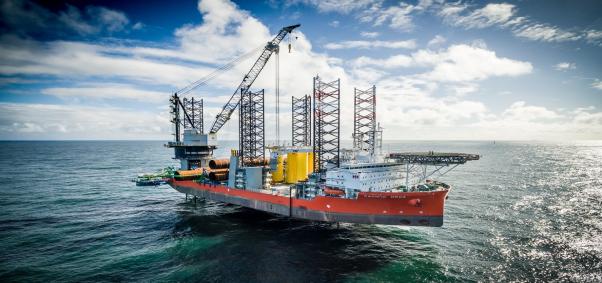
This article was published in The Guardian on February 12, 2015.
Paul Polman is the CEO of Unilever and a member of the Global Commission on the Economy and Climate.
World leaders need to make it clear that they choose an inclusive and sustainable economy over the ageing, carbon-intensive dirty economic model based on burning fossil fuels.
To go further, we in business need for them to set up well-structured financial tools and rules that will give us stability and certainty, unleashing investment in everything from clean energy alternatives to smart infrastructure to agricultural technology.
They should also take advantage of plummeting oil prices and continuing low interest rates in developed countries to stop funnelling some $600bn a year in taxpayers’ money to fund fossil fuel subsidies, which often disproportionately benefit the rich who use more energy, investing this money instead in renewable sources and supporting innovation.
Not only would this benefit the climate, but begin to address issues of rising social inequality. This is just one example of the climate action agenda and the development agenda are so mutually reinforcing.
Powerful vested interests in high-carbon businesses are desperately opposing these changes, using obscure scientific data to question any action, or saying that it is too difficult, too expensive or not necessary. Do not be fooled.
The Global Commission on the Economy and Climate, of which I am a member, issued a report last year showing that the best strategies for pursuing sustainable economic growth go hand in hand with lowering carbon emissions. The world will invest around $90trn in infrastructure in the next 15 years, and the commission, which includes leaders from business, government and academia, including two Nobel laureates, found that better choices in how this is spent will deliver better quality growth as well as a better climate.
For example, building new urban transport systems would reduce pollution and generate savings of $3trn over the next 15 years. And restoring just 12% of the world’s degraded lands to productions, we would be able to feed another 200m people and increase farmers’ incomes by $40bn, without having to resort to clearing and burning precious forests.
Global business and investors have started taking action. More than a quarter of the world’s top 200 companies have set carbon intensity reduction goals in line with a 6% per year reduction target, while 150 of these companies have several environmental and social goals in place.
At the same time, around half of total institutional assets ($45trn) under management now subscribe to responsible investing principles, and climate risk management now needs to become part of investors’ fiduciary duty.
But governments’ leadership is needed for lasting change to happen.
Last week, together with a group of CEOs from some of the world’s largest companies and civil society organisations – including Sir Richard Branson, Ratan Tata and Mary Robinson – we directly called on world leaders to show leadership and commit to reach a global goal of net-zero greenhouse-gas emissions by 2050 and embed this goal in an agreement at a summit in Paris later this year.
This is key to ensure that we stay within 2C centigrade of warming, averting catastrophic climate change. Failing to act will create a hotter, more volatile planet prone to more severe droughts and floods, impacting people and businesses. Or put another way, we need this goal to spur the kind of investment that we know can save us from a business as usual trajectory.
We are already feeling the effects. The UN estimates for example that losses from natural disasters since 2000 have been $2.5trn, at least 50% higher than previous international estimates. And this is just the beginning.
This message needs to get to the representatives from around 190 nations who are holding crucial talks in Geneva this week to hash out a draft universal climate deal to be finalised at the Paris summit later this year.
Some countries have started taking action. In India, where I was last week, the government realises that it is actually in their self-interest to act. Prime Minister Modi has set out a bold vision for the country to become a leader in solar energyto meet fast rising energy demand, as renewable energy costs are likely to substantially decrease while cost of foreign coal will rise.
It is just as well. India is already home to 15 of the world’s 30 most polluted cities, and with an expected 50% increase in urbanisation forecast in the next 15 years, the only smart urban strategy is one which decouples economic growth from growth in fossil fuel use.
The progress in India follows recent, ground-breaking work and policy announcements in China and the United States. This is now a global movement in which every country and business can play a leadership role.
But action from individual global businesses and countries alone, however powerful they may be, will not avert climate change. International collective action is needed instead. Negotiators meeting in Geneva and their should be brave and show political leadership. They can count on the growing number of progressive businesses to support them every step of the way.






